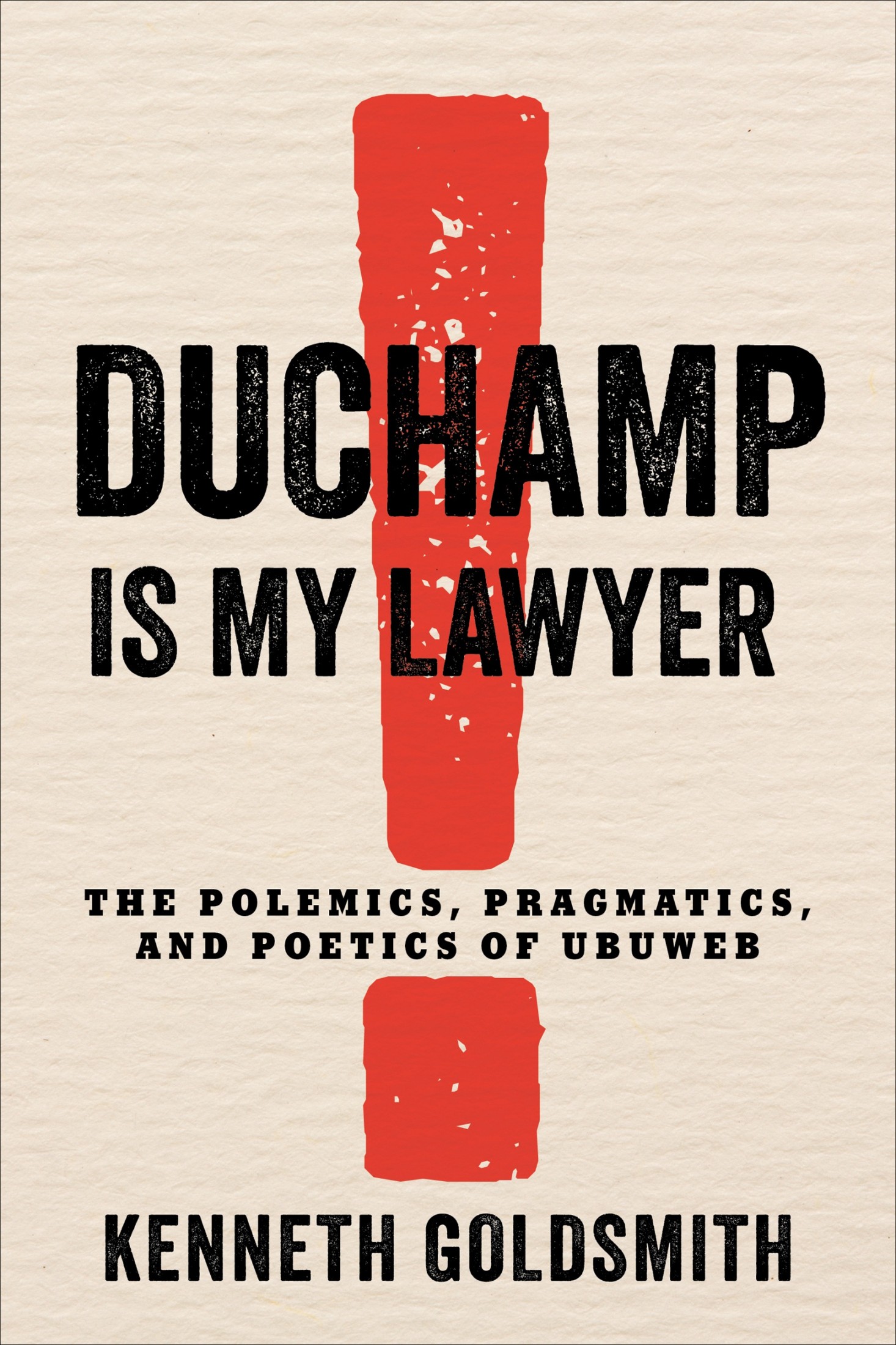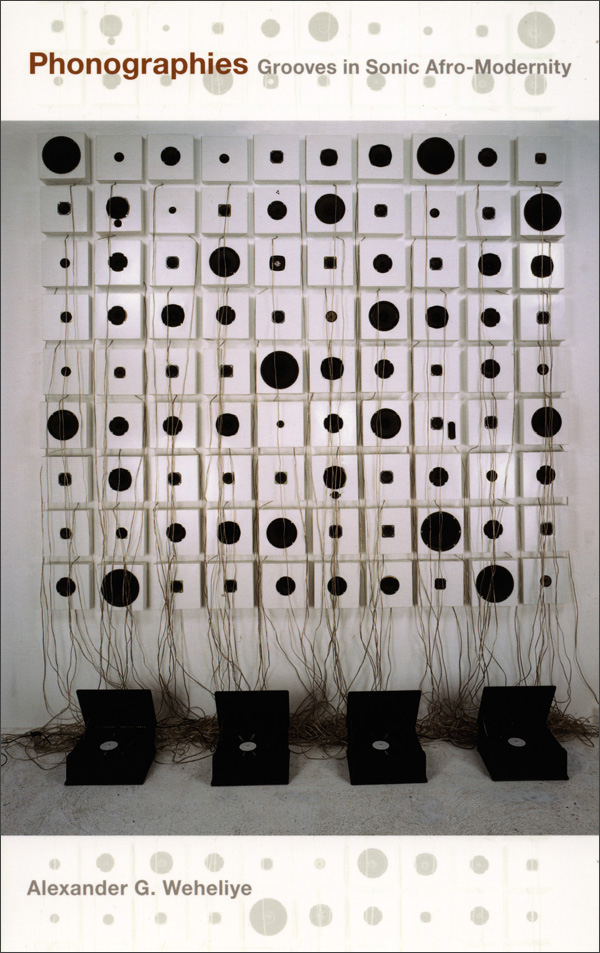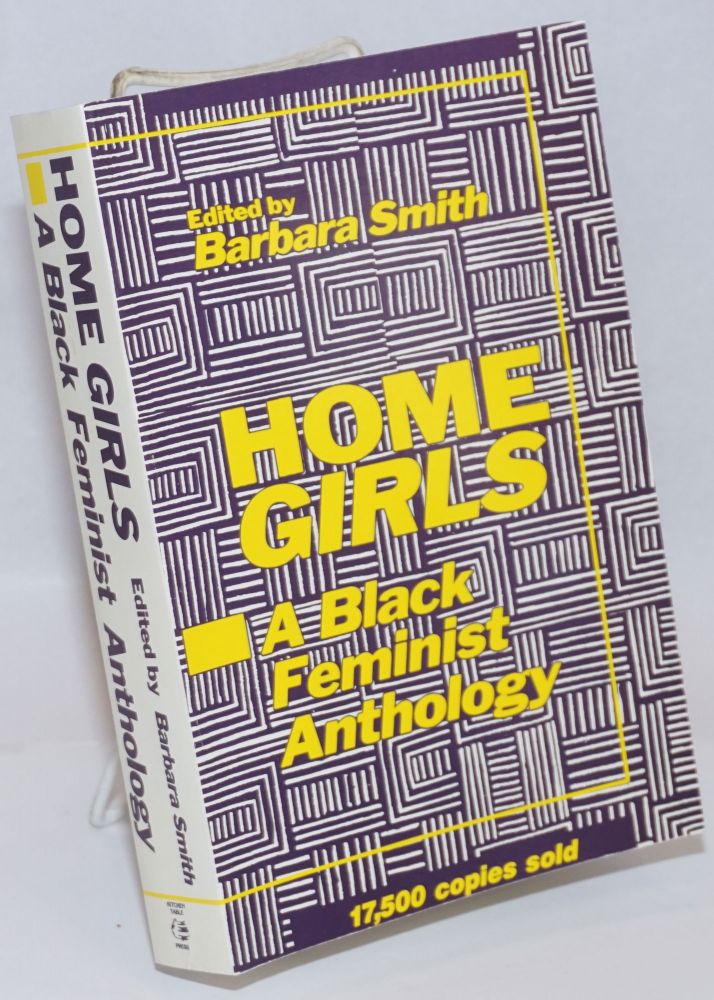Kenneth Goldsmith: Duchamp Is My Lawyer: The Polemics, Pragmatics, and Poetics of UbuWeb (2020)
Filed under book | Tags: · abstraction, algorithm, appropriation, avant-garde, collage, conceptual writing, concrete poetry, copyright, digital library, digitisation, language, modernism, noise, piracy, shadow library, sound poetry, ubuweb, video art, visual poetry

“In 1996, during the relatively early days of the web, Kenneth Goldsmith created UbuWeb to post hard-to-find works of concrete poetry. What started out as a site to share works from a relatively obscure literary movement grew into an essential archive of twentieth- and twenty-first-century avant-garde and experimental literature, film, and music. Visitors around the world now have access to both obscure and canonical works, from artists such as Kara Walker, Yoko Ono, Pauline Oliveros, Samuel Beckett, Marcel Duchamp, Cecil Taylor, Glenn Ligon, William Burroughs, and Jean-Luc Godard.
In Duchamp Is My Lawyer, Goldsmith tells the history of UbuWeb, explaining the motivations behind its creation and how artistic works are archived, consumed, and distributed online. Based on his own experiences and interviews with a variety of experts, Goldsmith describes how the site navigates issues of copyright and the ways that UbuWeb challenges familiar configurations and histories of the avant-garde. The book also portrays the growth of other “shadow libraries” and includes a section on the artists whose works reflect the aims, aesthetics, and ethos of UbuWeb. Goldsmith concludes by contrasting UbuWeb’s commitment to the free-culture movement and giving access to a wide range of artistic works with today’s gatekeepers of algorithmic culture, such as Netflix, Amazon, and Spotify.”
Publisher Columbia University Press, New York, 2020
ISBN 9780231186940, 0231186940
x+318 pages
Reviews: Raphael Rubinstein (Art in America, 2020), Jan Baetens (Leonardo, 2020), Mark Athitakis (On the Seawall, 2020), Nick Soulsby (PopMatters, 2020), Alexander Adams (2020), Tomáš Hudák (3/4, 2020, SK), Cécile Marie-Castanet (Critique d’art, 2020, FR), Georg Fischer (iRights.info, 2020, DE), Gill Partington (London Review of Books, 2021), Daniel Morris (Williams Review, 2021), Andrew S. Taylor (American Book Review, 2022), Roi Tartakovsky (Common Knowledge, 2023).
HTML (added on 2020-6-23)
EPUB (11 MB, updated on 2020-6-24)
Alexander G. Weheliye: Phonographies: Grooves in Sonic Afro-Modernity (2005)
Filed under book | Tags: · black people, djs, hip hop, modernity, music, music history, phonograph, sound, sound recording, technology

“Phonographies explores the numerous links and relays between twentieth-century black cultural production and sound technologies from the phonograph to the Walkman. Highlighting how black authors, filmmakers, and musicians have actively engaged with recorded sound in their work, Alexander G. Weheliye contends that the interplay between sound technologies and black music and speech enabled the emergence of modern black culture, of what he terms ‘sonic Afro-modernity’. He shows that by separating music and speech from their human sources, sound-recording technologies beginning with the phonograph generated new modes of thinking, being, and becoming. Black artists used these new possibilities to revamp key notions of modernity—among these, ideas of subjectivity, temporality, and community. Phonographies is a powerful argument that sound technologies are integral to black culture, which is, in turn, fundamental to Western modernity.
Weheliye surveys literature, film, and music to focus on engagements with recorded sound. He offers substantial new readings of canonical texts by W. E. B. Du Bois and Ralph Ellison, establishing dialogues between these writers and popular music and film ranging from Louis Armstrong’s voice to DJ mixing techniques to Darnell Martin’s 1994 movie I Like It Like That. Looking at how questions of diasporic belonging are articulated in contemporary black musical practices, Weheliye analyzes three contemporary Afro-diasporic musical acts: the Haitian and African American rap group the Fugees, the Afro- and Italian-German rap collective Advanced Chemistry, and black British artist Tricky and his partner Martina. Phonographies imagines the African diaspora as a virtual sounding space, one that is marked, in the twentieth century and twenty-first, by the circulation of culture via technological reproductions—records and tapes, dubbing and mixing, and more.”
Publisher Duke University Press, Durham, NC, 2005
ISBN 0822335778, 9780822335771
xii+286 pages
Reviews: Matthew Somoroff (NewBlackMan, 2006), Greg Tate (Souls, 2007), Emma Louise Kilkelly (Journal of American Studies, 2007), George Lipsitz (Journal of the Society for American Music, 2008).
Commentary: Alexander G. Weheliye (Small Axe, 2014), Tavia Nyong’o (Small Axe, 2014).
PDF (updated on 2021-4-13)
Comment (0)Barbara Smith (ed.): Home Girls: A Black Feminist Anthology (1983)
Filed under book | Tags: · black people, feminism, gender, intersectionality, race, sexuality, women

“The pioneering anthology Home Girls features writings by Black feminist and lesbian activists. Since its initial publication in 1983, it has become an essential text on Black women’s lives and writings.”
The book grew out of Conditions magazine’s November 1979 issue, edited by Barbara Smith and Lorraine Bethel. Conditions 5 was “the first widely distributed collection of Black feminist writing in the U.S.”
Contributors: Tania Abdulahad, Donna Allegra, Barbara A. Banks, Becky Birtha, Julie Carter, Cenen, Cheryl Clarke, Michelle Cliff, Michelle T. Clinton, Willie M. Coleman, Toi Derricotte, Alexis De Veaux, Jewelle L. Gomez, Akasha (Gloria) Hull, Patricia Jones, June Jordan, Audre Lorde, Raymina Y. Mays, Deidre McCalla, Chirlane McCray, Pat Parker, Linda C. Powell, Bernice Johnson Reagon, Spring Redd, Gwendolyn Rogers, Kate Rushin, Ann Allen Shockley, Barbara Smith, Beverly Smith, Shirley O. Steele, Luisah Teish, Jameelah Waheed, Alice Walker, and Renita Weems.
Publisher Kitchen Table: Women of Color Press, New York, 1983
Reprint Rutgers University Press, New Brunswick, NJ, 2000
ISBN 0913175021, 9780913175026
lviii+376 pages
Reviews: Melba Wilson (Feminist Review, 1984), Gabrielle Daniels (Women’s Review of Books, 1984), C. Lynn Munro (Black American Literature Forum, 1984), Linda Pannill (Callaloo, 1984), Caroline A. Streeter (Off Our Back, 1984), Hortense Spillers (Tulsa Studies in Women’s Literature, 1984).
PDF (7 MB)
See also This Bridge Called My Back: Writings by Radical Women of Color (1981) and Words of Fire: An Anthology of African-American Feminist Thought (1995).
Comment (0)
